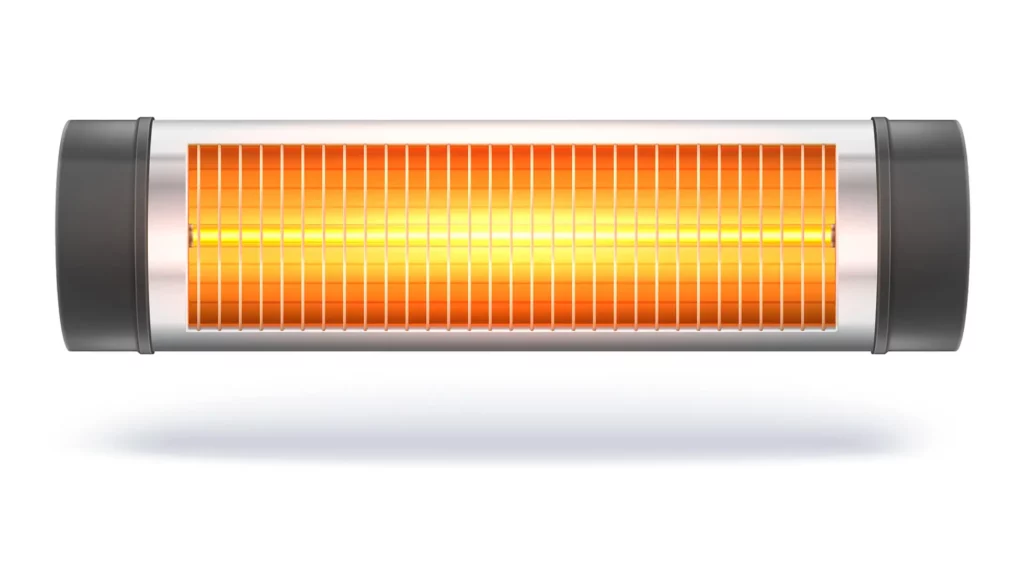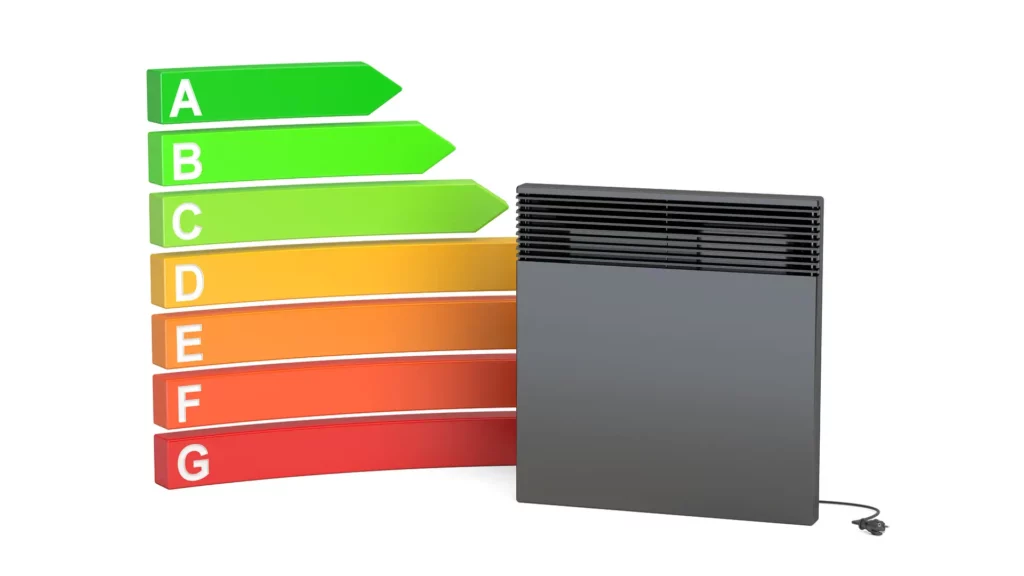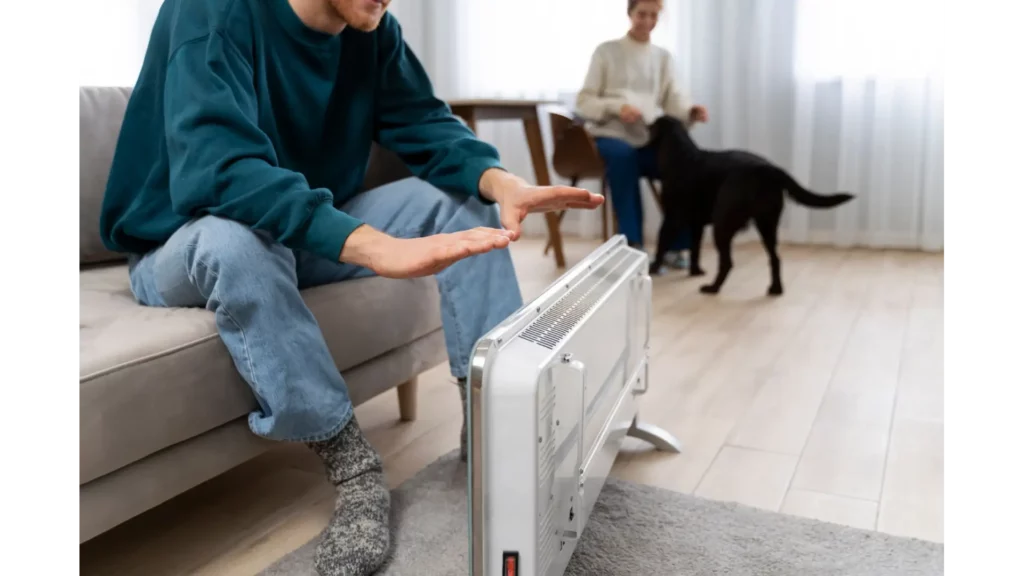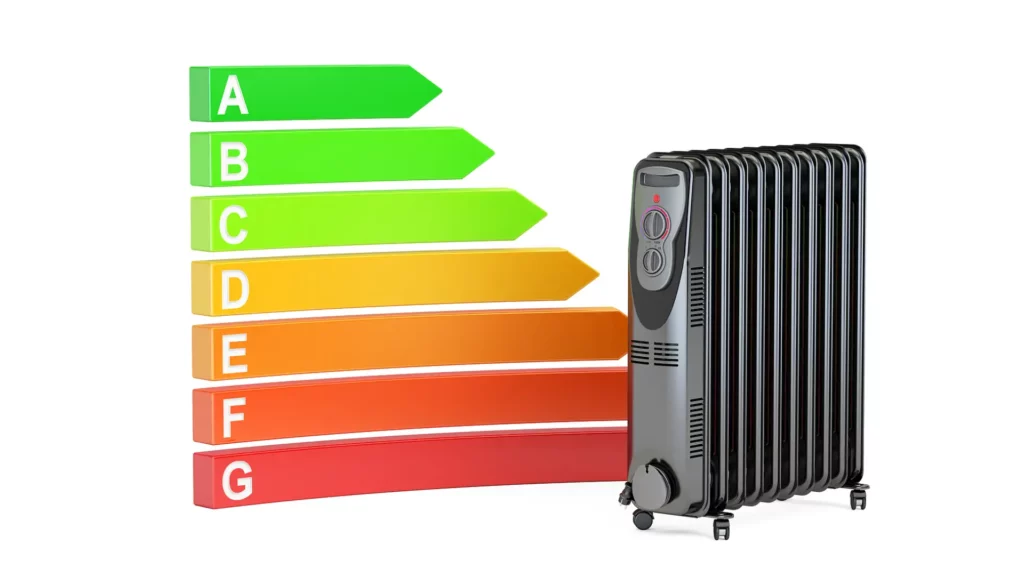Is a Space Heater More Energy Efficient
In the pursuit of energy efficiency, homeowners often seek alternatives to traditional heating systems. One such option that has gained popularity in recent years is the space heater.
But amidst the buzz surrounding its effectiveness, a crucial question persists: Is a space heater more energy efficient.
In this guide, we'll delve deep into the intricacies of space heaters, exploring their efficiency, benefits, drawbacks, and how they stack up against conventional heating methods.
Understanding the Basics of Space Heaters
Before we embark on our journey to unravel the energy efficiency of space heaters, let's first grasp the fundamental principles behind these devices.
A space heater is a portable appliance designed to provide localized heating in a specific area, as opposed to heating an entire building or home.
They come in various forms, including convection heaters, radiant heaters, ceramic heaters, and oil-filled heaters.

The Impact on Energy Bills and the Environment
Energy Bills
Space heaters affect energy bills based on factors like electricity consumption, localized heating, thermostat control, and insulation quality.
While they primarily run on electricity, their localized heating can potentially reduce overall energy consumption compared to central heating systems.
Thermostat controls and programmable features help optimize energy usage, and insulation quality plays a significant role in efficiency.
Environmental Impact
Space heaters influence the environment through electricity generation, emissions, air quality, and resource consumption.
Depending on the electricity source, their usage can contribute to greenhouse gas emissions and air pollution.
Choosing renewable energy sources and energy-efficient models can mitigate these impacts. Additionally, proper disposal practices can minimize waste generation.

Types of Space Heaters and Their Efficiencies
Not all space heaters are created equal. There are several types, including infrared heaters, ceramic heaters, oil-filled radiators, and electric fan heaters, each with its own efficiency profile.
- Infrared Heaters: These heaters use radiation to warm up objects and people directly, making them highly efficient for direct heating in small to medium spaces.
- Ceramic Heaters: These convert electricity into heat through a ceramic heating element and are effective for heating smaller rooms quickly.
- Oil-Filled Radiators: These heaters warm up the oil inside their columns, and the heat is then radiated into the room. They're efficient for prolonged use in a stable environment because they retain heat well.
- Electric Fan Heaters: These blow air over a heated element to warm a room. They're less efficient than other types but effective for quick heating in small areas.

The Benefits of Using Space Heaters for Efficient Heating
Space heaters offer numerous advantages that make them a compelling choice for efficient heating:
- Localized Heating Efficiency: Space heaters provide targeted heat where it's needed, avoiding unnecessary energy consumption by heating only specific areas.
- Cost Savings: By heating only occupied spaces, space heaters can lead to significant savings on energy bills compared to central heating systems.
- Quick and Convenient Heating: Space heaters deliver rapid warmth, making them ideal for quickly heating rooms like bathrooms or home offices.
- Portability and Versatility: Their portability allows for easy movement between rooms, adapting to changing heating needs.
- Supplemental Heating: Space heaters can supplement central heating systems during extreme cold or in poorly insulated areas.
- Energy-Saving Features: Modern space heaters come with features like programmable thermostats and timers to optimize energy usage.
- Enhanced Safety Features: Space heaters incorporate safety features such as tip-over switches and overheat protection for safe operation.
- Environmental Considerations: Electric space heaters produce zero emissions on-site and contribute to overall energy conservation.

Energy Efficiency Space Heater vs Central Heat
Now, let's address the burning question: Is a space heater more energy efficient than conventional heating systems such as central heating? To ascertain this, we must examine several factors:
- Localized Heating
One of the primary advantages of space heaters is their ability to deliver targeted heat precisely where it's needed.
Unlike central heating systems that warm the entire house, space heaters allow users to heat specific rooms or areas, thereby potentially reducing overall energy consumption.
- Energy Consumption
Space heaters typically operate on electricity, while central heating systems may rely on electricity, natural gas, propane, or oil. The energy source plays a significant role in determining efficiency.
Electric space heaters, for instance, can be highly efficient, converting nearly all the electricity they consume into heat. However, the overall efficiency may vary depending on factors such as insulation, room size, and usage patterns.
- Thermostat Control
Many modern space heaters come equipped with advanced features like programmable thermostats and timers, allowing users to regulate temperature settings more efficiently.
Central heating systems also offer thermostat control, but the ability to customize heating schedules with space heaters can lead to greater energy savings.
- Insulation and Heat Loss
Another crucial aspect to consider is the insulation quality of the space being heated. Poor insulation can result in heat loss, requiring more energy to maintain comfortable temperatures.
Central heating systems may mitigate this issue by evenly distributing heat throughout the entire house. However, in well-insulated spaces, the targeted heating provided by space heaters can be more efficient.

Factors Influencing Space Heater Efficiency
While space heaters offer several advantages in terms of energy efficiency, their effectiveness can be influenced by various factors:
- Size and Power Rating: Choosing the right size and power rating is essential to ensure optimal efficiency. An oversized heater may consume more energy than necessary, while an undersized one might struggle to adequately heat the intended space.
- Usage Patterns: How often and for how long the space heater is used can impact its overall efficiency. Turning off the heater when not needed and utilizing programmable features can help minimize energy consumption.
- Safety Features: Modern space heaters are equipped with safety features such as tip-over switches and overheating protection, which not only enhance safety but also contribute to energy efficiency by preventing wasteful operation.
- Placement and Ventilation: Proper placement of the space heater is crucial for efficient heating. Placing it near doors, windows, or drafts can lead to heat loss, while ensuring adequate ventilation prevents the buildup of indoor pollutants.

Energy Efficiency Tips for Space Heater Users
Maximizing the efficiency of your space heater not only helps reduce energy consumption but also contributes to cost savings. Here are some essential tips to enhance the energy efficiency of your space heater:
- Choose the Right Size and Type: Opt for a space heater that matches the size of the room you want to heat. Select the appropriate type of heater based on your needs, considering options like ceramic heaters for energy efficiency and radiant heaters for quick heating.
- Optimize Placement: Place your space heater in the center of the room for optimal air circulation. Keep it away from obstacles like furniture and curtains to ensure efficient heat distribution.
- Seal Drafts and Improve Insulation: Seal any drafts around windows and doors to prevent heat loss. Enhance insulation in the room to retain heat effectively and reduce the workload on your space heater.
- Utilize Thermostat and Timer Settings: Set the thermostat to your desired temperature and use programmable timers to schedule heating periods according to your routine, avoiding unnecessary energy consumption.
- Supplement with Ceiling Fans: Use ceiling fans in rooms with high ceilings to circulate warm air more evenly. Run the fan in reverse at a low speed to push warm air downward and reduce reliance on the space heater.
- Practice Zone Heating: Focus on heating specific rooms or areas with space heaters rather than the entire house, allowing for targeted heating and reduced energy usage.
- Dress Warmly and Use Blankets: Encourage wearing warm clothing and provide blankets to stay cozy, minimizing the need for excessive heating.
- Keep Heater Clean and Well-Maintained: Regularly clean and maintain your space heater to ensure optimal performance, including removing dust and debris from heating elements, vents, and filters.

Space Heater More Energy Efficient FAQs (Frequently Asked Questions)
1. Are Space Heater Energy Efficient?
Answer: Yes, space heaters can be energy efficient when used appropriately. Their efficiency depends on factors such as the size of the space being heated, the type of space heater used, insulation quality, and usage patterns. Choosing an appropriately sized heater, utilizing programmable features, and ensuring proper insulation can maximize energy efficiency.
2. Are Space Heaters More Energy Efficient Than Central Heat?
Answer: It depends on various factors. Space heaters offer localized heating, allowing users to heat specific areas rather than the entire house, potentially reducing energy consumption. However, central heating systems may be more efficient in evenly distributing heat throughout the home. The comparative energy efficiency ultimately depends on individual usage patterns, insulation quality, and the specific heating needs of the household.
3. How to Tell If a Space Heater Is Energy Efficient?
Answer: Several indicators can help determine the energy efficiency of a space heater:
- Energy Star certification: Look for space heaters with Energy Star certification, indicating that they meet strict energy efficiency guidelines.
- Power consumption: Check the wattage of the space heater. Lower wattage heaters typically consume less energy.
- Programmable features: Space heaters with programmable thermostats and timers allow for more efficient heating schedules, reducing energy waste.
- Safety features: Modern space heaters with safety features such as tip-over switches and overheating protection not only enhance safety but also contribute to energy efficiency by preventing wasteful operation.
4. Is a Space Heater Energy Efficient?
Answer: Yes, space heaters can be energy efficient if used appropriately. Factors such as size, power rating, usage patterns, insulation quality, and safety features influence their efficiency. By selecting the right heater size, utilizing programmable features, and ensuring proper insulation, users can maximize energy efficiency and reduce heating costs.
5. Is It More Energy Efficient to Use a Space Heater?
Answer: The energy efficiency of using a space heater versus central heating depends on various factors such as the size of the space being heated, insulation quality, and usage patterns. While space heaters offer localized heating and customizable features that can contribute to energy savings, central heating systems may be more efficient in evenly distributing heat throughout the entire house. The comparative energy efficiency ultimately depends on individual circumstances and preferences.
6. Is Portable Heater Energy Efficient?
Answer: Portable heaters, including space heaters, can be energy efficient if used appropriately. Factors such as size, power rating, usage patterns, insulation quality, and safety features influence their efficiency. Choosing an appropriately sized heater, utilizing programmable features, and ensuring proper insulation can maximize energy efficiency and reduce heating costs.
7. Is Space Heater Energy Efficient?
Answer: Yes, space heaters can be energy efficient when used appropriately. Factors such as size, power rating, usage patterns, insulation quality, and safety features influence their efficiency. By selecting the right heater size, utilizing programmable features, and ensuring proper insulation, users can maximize energy efficiency and reduce heating costs.
Is a Space Heater More Energy Efficient Conclusion
In conclusion, the question Is a space heater more energy efficient? does not yield a straightforward answer.
While space heaters offer localized heating and customizable features that can contribute to energy savings, their efficiency is contingent upon various factors such as size, usage patterns, and insulation quality.
Central heating systems, on the other hand, provide comprehensive heating solutions but may be less efficient in terms of targeted heating and energy consumption.
Source
https://www.energy.gov/energysaver/small-space-heaters
https://www.ncbi.nlm.nih.gov/books/NBK532146/
https://www.energy.gov/energysaver/electric-resistance-heating

